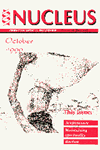Elderly people often show evidence of disordered thermoregulation, and are particularly sensitive to extremes of environmental temperatures. They are therefore more vulnerable to hypothermia, which is defined as having a core body temperature of less than 35C. Risk factors for hypothermia are numerous. Impaired thermoregulation occurs in acute diseases such as pneumonia, heart failure, and myocardial infarctions. Conditions of reduced metabolism such as hypothyroidism and diabetes mellitus can contribute, as can the social problems of poverty and poor housing. Neurological illnesses such as Alzheimer's disease or other confusional states can act by reducing cold awareness. Diseases of the autonomic nervous system can also impair the physiological response to the cold. One major factor in clinical practice is the effect of drugs; neuroleptics, antidepressants and diuretics can all precipitate acute episodes of hypothermia.
David was approximately seventy when he died2 and had no evidence of other physical or mental illness so it seems reasonable to assume that his hypothermia was due either to age-related impaired homeostatic mechanisms of thermoregulation or a mild medical condition. Luke favours hypothyroidism on the grounds that cold intolerance may be the first presenting feature. The classic features of weight gain, lethargy, constipation, hair loss and coarsening of the skin occur only in a quarter of elderly patients1 but we are not told whether David exhibited the decline in general health and mobility and psychiatric manifestations (in particular depression) which are often also present. In this age group the most common underlying cause is autoimmune disease.
Hypothyroidism is safely treated with replacement thyroxine. Sharing body heat is now only really applicable today for acute hypothermia in survival situations.
- Weatherall DJ et al (Eds). Oxford Textbook of Medicine. Oxford Medical Publications, 1996:4345
- 2 Sa 5:4
Differential Diagnosis 31
Matthew 8:5,6
A centurion came to Jesus saying 'my servant lies at home paralysed and in terrible suffering'. Jesus healed him in response to his master's faith, but what was the diagnosis?
Luke's opinion in the April 2000 issue.
































